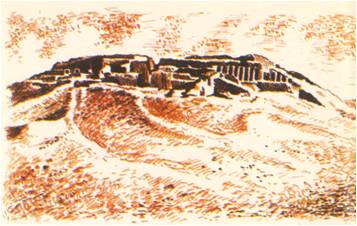Even before the Korean War, the United Nations had proved that it could take effective action to control serious conflicts. It first took such action in the conflict over Palestine. During World War I, the British had ousted the Turks from Palestine. When the war was over, the League of Nations placed that land under the authority of Britain. The British then issued the famous Balfour Declaration, which promised the Jewish people that Palestine would someday become their homeland, but the Arabs of Palestine and the surrounding countries strongly objected to this and year after year passed without the British …
Read More »Independence for India 1920 – 1964
Even before the end of World War II, it was clear that Asia and Africa would soon be shaken by a great movement for independence. Everywhere the colonial peoples wanted to be free of the rule of other countries. The British, who controlled more colonies than any other nation, knew that they faced the break-up of their empire. Churchill was opposed to giving up any of Britain’s power. In 1942, he said, “I haven’t become the king’s first minister to preside over the liquidation of the British Empire.” A number of Englishmen shared his view, including some members of the …
Read More »The War Spreads 1625 -1648
THE BLOOD-LETTING in Germany aroused new ambitions in many of the kings of Europe. In Denmark and Sweden, the strong Protestant king: who were taming opposition at home began looking to Germany as a land ripe for conquest. Furthermore, in attacking Germany they were also attacking the hated power of Roman Catholicism. Quickest of all to act was Christian IV, king of Denmark. Christian did not doubt that he was equal to the task. At the age of five he had learned fencing and the use of firearms‚ waking at five each morning and practicing long hours. He became king …
Read More »Prince Henry’s School 1415 – 1499
IN 1415, WHEN ALL OF CHRISTENDOM belonged to one church and Christians battled pagan Turks instead of one another, a force of Portuguese marines set sail for the coast of Africa. They planned to attack a town called Ceuta. A stronghold that guarded the narrow passage connecting the Mediterranean Sea with the Atlantic, Ceuta was the end link in the chain of fortresses and well-armed ports that the Turks had tightened around the southern and eastern boundaries of Europe. Held in by this chain, European merchants could not trade in the luxury-filled markets of the east, pilgrims could not journey …
Read More »Civilization comes to India 3500 B.C to 200 B.C.
For thousands of years during the Stone Age, only scattered groups of people had lived in India. With only the simplest tools of bone, wood and stone, they hunted and gathered food. Cut off from other peoples by the mountain and the sea, the first Indians made few advances in their primitive way of life. Then, sometime between 3500 B. C., new settlers began to appear along the Indus River Valley in northwestern India, a region that would be called West Pakistan thousands of years later. It seems almost certain that these newcomers were from the mountains and plateaus to …
Read More »



